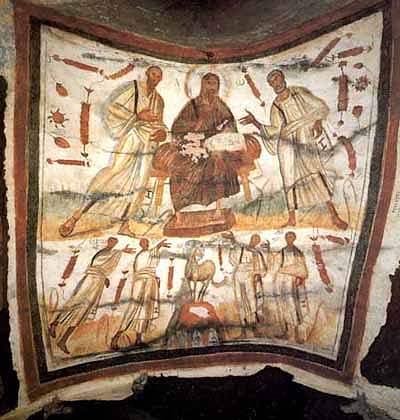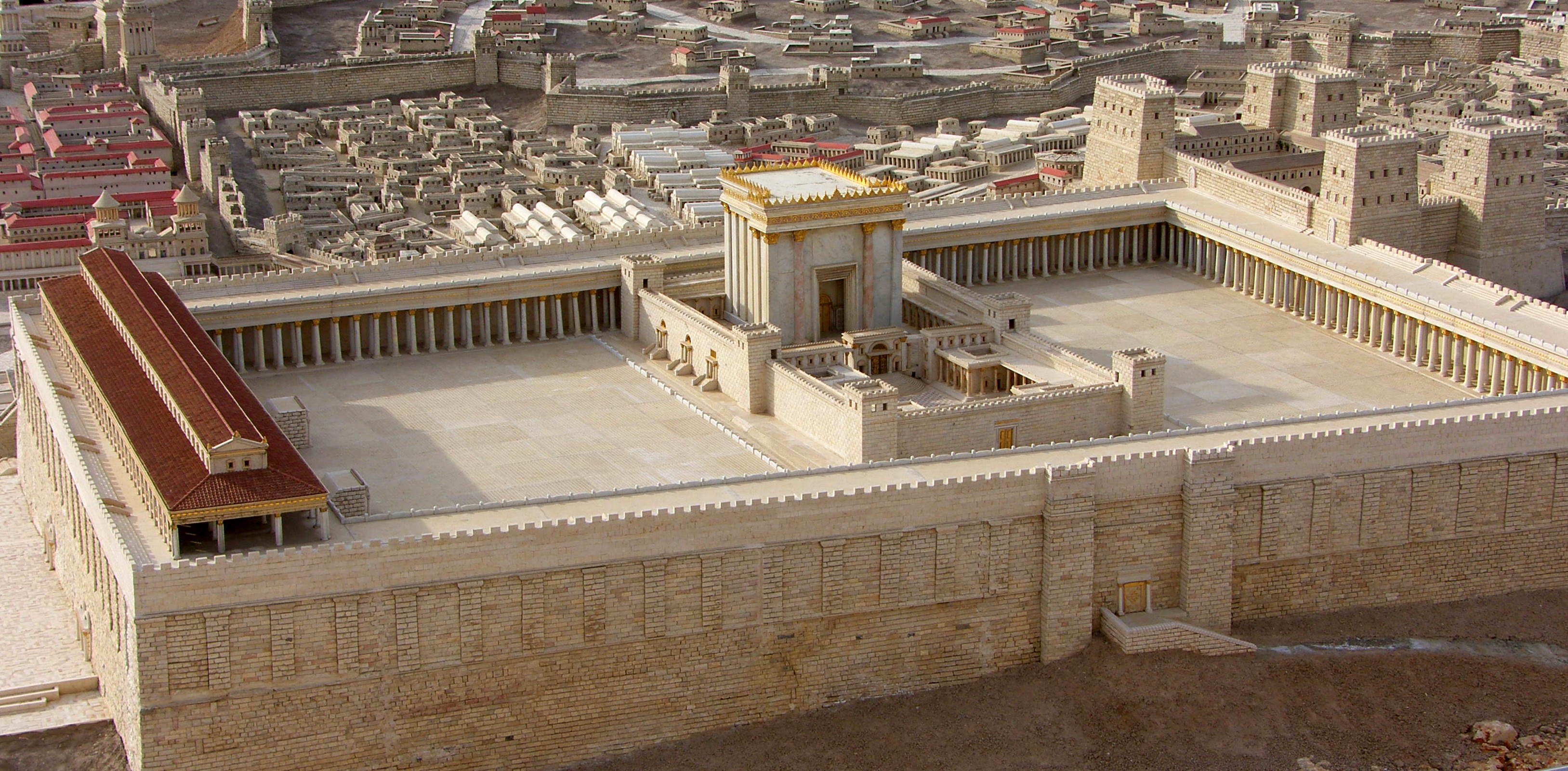|
Cultural And Historical Background Of Jesus
Most scholars who study the historical Jesus and early Christianity believe that the canonical gospels and the life of Jesus must be viewed within their historical and cultural context, rather than purely in terms of Christian orthodoxy. They look at Second Temple Judaism, the tensions, trends, and changes in the region under the influence of Hellenism and the Roman occupation, and the Jewish factions of the time, seeing Jesus as a Jew in this environment; and the written New Testament as arising from a period of oral gospel traditions after his death. In 64 BCE, the already partially Hellenized Hasmonean Kingdom of Judea was incorporated into the Roman Republic as a client kingdom when Pompey the Great conquered Jerusalem. The Romans treated Judea as a valued crossroads to trading territories, and as a buffer state against the Parthian Empire. Direct rule was imposed in 6 CE, with the formation of the province of Judea. Roman prefects were appointed to maintain order throug ... [...More Info...] [...Related Items...] OR: [Wikipedia] [Google] [Baidu] |
Buffer State
A buffer state is a country geographically lying between two rival or potentially hostile great powers. Its existence can sometimes be thought to prevent conflict between them. A buffer state is sometimes a mutually agreed upon area lying between two greater powers, which is demilitarised in the sense of not hosting the armed forces of either power (though it will usually have its own military forces). The invasion of a buffer state by one of the powers surrounding it will often result in war between the powers. Buffer states, when authentically independent, typically pursue a neutralist foreign policy, which distinguishes them from satellite states. The concept of buffer states is part of a theory of the balance of power that entered European strategic and diplomatic thinking in the 18th century. After the First World War, notable examples of buffer states were Poland and Czechoslovakia, situated between major powers such as Germany and the Soviet Union. Lebanon is another si ... [...More Info...] [...Related Items...] OR: [Wikipedia] [Google] [Baidu] |
Siege Of Jerusalem (70 CE)
The siege of Jerusalem in 70 CE was the decisive event of the First Jewish–Roman War (66–73 CE), a major rebellion against Roman rule in the province of Judaea. Led by Titus, Roman forces besieged the Jewish capital, which had become the main stronghold of the revolt. After months of fighting, they breached its defenses, destroyed the Second Temple, razed most of the city, and killed, enslaved, or displaced a large portion of its population. The fall of Jerusalem marked the effective end of the Jewish revolt and had far-reaching political, religious, and cultural consequences. In the winter of 69/70 CE, following a pause caused by the Roman succession war, the campaign in Judaea resumed as Titus led at least 48,000 troops—including four legions and auxiliary forces—back into the province. By spring, this army had encircled Jerusalem, whose population had surged with refugees and Passover pilgrims. Inside the city, rival factions led by John of Gischala, Simon ... [...More Info...] [...Related Items...] OR: [Wikipedia] [Google] [Baidu] |
First Jewish-Roman War
First most commonly refers to: * First, the ordinal form of the number 1 First or 1st may also refer to: Acronyms * Faint Images of the Radio Sky at Twenty-Centimeters, an astronomical survey carried out by the Very Large Array * Far Infrared and Sub-millimetre Telescope, of the Herschel Space Observatory * For Inspiration and Recognition of Science and Technology, an international youth organization * Forum of Incident Response and Security Teams, a global forum Arts and entertainment Albums * ''1st'' (album), by Streets, 1983 * ''1ST'' (SixTones album), 2021 * ''First'' (David Gates album), 1973 * ''First'', by Denise Ho, 2001 * ''First'' (O'Bryan album), 2007 * ''First'' (Raymond Lam album), 2011 Extended plays * ''1st'', by The Rasmus, 1995 * ''First'' (Baroness EP), 2004 * ''First'' (Ferlyn G EP), 2015 Songs * "First" (Lindsay Lohan song), 2005 * "First" (Cold War Kids song), 2014 * "First", by Lauren Daigle from the album '' How Can It Be'', 2015 * "First" ... [...More Info...] [...Related Items...] OR: [Wikipedia] [Google] [Baidu] |
Anti-Judaism
Anti-Judaism denotes a spectrum of historical and contemporary ideologies that are fundamentally or partially rooted in opposition to Judaism. It encompasses the rejection or abrogation of the Mosaic covenant and advocates for the supersession of Judaism and Jewish identity by proponents of other religious, political- ideological, or theological frameworks, which assert their own precedence as the " light unto the nations" or as the chosen people of God. The opposition is often perpetuated through the reinterpretation and appropriation of Jewish prophecy and texts, reflecting a complex interplay of belief systems that challenge Jews' internally and externally conceived distinctiveness. David Nirenberg posits that the theme has manifested throughout history, including in contemporary and early Christianity, Islam, nationalism, Enlightenment rationalism, and in socioeconomic contexts. Douglas R. A. Hare found at least three anti-Judaisms in history. The first is proph ... [...More Info...] [...Related Items...] OR: [Wikipedia] [Google] [Baidu] |
History Of The Jews In The Roman Empire
The history of the Jews in the Roman Empire () traces the interaction of Jews and Romans during the period of the Roman Empire (27 BC – 476 AD). A Jewish diaspora had migrated to Rome and to the territories of Roman Europe from the land of Israel, Anatolia, Babylon and Alexandria in response to economic hardship and incessant warfare over the land of Israel between the Ptolemaic and Seleucid empires from the 4th to the 1st centuries BC. In Rome, Jewish communities thrived economically. Jews became a significant part of the Roman Empire's population in the first century AD (Anno Domini), with some estimates as high as 7 million people; however, this estimation has been questioned. Roman general Pompey conquered Jerusalem and its surroundings by 63 BC. The Romans deposed the ruling Hasmonean dynasty of Judaea (in power from 140 BC) and the Roman Senate declared Herod the Great "King of the Jews" in 40 BC. Judea proper, Samaria and Idumea became the Roman province of Ju ... [...More Info...] [...Related Items...] OR: [Wikipedia] [Google] [Baidu] |
Zealotry
The Zealots were members of a Jewish political movement during the Second Temple period who sought to incite the people of Judaea to rebel against the Roman Empire and expel it from the Land of Israel by force of arms, most notably during the First Jewish–Roman War. "Zealotry" was the term used by the Jewish historian Josephus for a "fourth sect" or "fourth Jewish philosophy" during this period. Etymology The term ''zealot'', the common translation of the Hebrew '' kanai'' (, frequently used in plural form, , ''kana'im''), means one who is zealous on behalf of God. The term derives from Greek (''zelotes''), "emulator, zealous admirer or follower". History Josephus' '' Jewish Antiquities'' states that there were three main Jewish sects at this time, the Pharisees, the Sadducees, and the Essenes. The Zealots were a "fourth sect", founded by Judas of Galilee (also called Judas of Gamala) in 6 CE against the Census of Quirinius, shortly after the Roman Empire declared what h ... [...More Info...] [...Related Items...] OR: [Wikipedia] [Google] [Baidu] |
Rebellion
Rebellion is an uprising that resists and is organized against one's government. A rebel is a person who engages in a rebellion. A rebel group is a consciously coordinated group that seeks to gain political control over an entire state or a portion of a state. A rebellion is often caused by political, religious, or social grievances that originate from a perceived inequality or marginalization. ''Rebellion'' comes from Latin ''re'' and ''bellum'', and in Lockian philosophy refers to the Right of revolution, responsibility of the people to overthrow unjust government. Classification Uprisings which revolt, Resistance movement, resisting and taking direct action against an authority, law or policy, as well as organize, are rebellions. An insurrection is an uprising to change the government. If a government does not recognize rebels as belligerents, then they are insurgents and the revolt is an insurgency. In a larger conflict, the rebels may be recognized as belligerents ... [...More Info...] [...Related Items...] OR: [Wikipedia] [Google] [Baidu] |
Riot
A riot or mob violence is a form of civil disorder commonly characterized by a group lashing out in a violent public disturbance against authority, property, or people. Riots typically involve destruction of property, public or private. The property targeted varies depending on the riot and the inclinations of those involved. Targets can include Shopping mall, shops, cars, restaurants, state-owned institutions, and religious buildings. Riots often occur in reaction to a grievance or out of dissent. Historically, riots have occurred due to poverty, unemployment, poor quality of life, living conditions, governmental oppression, taxation or conscription, conflicts between ethnic groups (race riot) or religions (e.g., sectarian violence, pogrom), the outcome of a sporting event (e.g., sports riot, football hooliganism) or frustration with legal channels through which to air grievances. While individuals may attempt to lead or control a riot, riots typically consist of disorganize ... [...More Info...] [...Related Items...] OR: [Wikipedia] [Google] [Baidu] |
Pontius Pilate
Pontius Pilate (; ) was the Roman administration of Judaea (AD 6–135), fifth governor of the Judaea (Roman province), Roman province of Judaea, serving under Emperor Tiberius from 26/27 to 36/37 AD. He is best known for being the official who presided over Pilate's court, the trial of Jesus and ultimately ordered crucifixion of Jesus, his crucifixion. Pilate's importance in Christianity is underscored by his prominent place in both the Apostles' Creed, Apostles' and Nicene Creeds. Because the gospels portray Pilate as reluctant to execute Jesus, the Ethiopian Orthodox Tewahedo Church believes that Pilate became a Christian and venerates him as both a martyr and a saint, a belief which is historically shared by the Coptic Orthodox Church, Coptic Church, with a Calendar of saints, feast day on 19 or 25 June, respectively. Pontius Pilate is the best-attested figure to hold the position of Roman governor, though few sources about his rule have survived. Virtually nothing is known ... [...More Info...] [...Related Items...] OR: [Wikipedia] [Google] [Baidu] |
Judas The Galilean
Judas of Galilee, or Judas of Gamala, was a Jewish leader who led resistance to the census imposed for Roman tax purposes by Quirinius in the Judaea Province in 6 AD. He encouraged Jews not to register, and those that did were targeted by his followers. He is credited with beginning the " fourth philosophy" which Josephus blames for the war with the Romans in 66–73. These events are discussed by Josephus in ''The Jewish War'' and in ''Antiquities of the Jews'' and mentioned in the Acts of the Apostles. In ''Antiquities of the Jews'', Josephus states that Judas, along with Zadok the Pharisee, founded the Zealots, the "fourth sect" of 1st-century Judaism (the first three being the Sadducees, the Pharisees, and the Essenes). Josephus blames this fourth sect for the First Jewish–Roman War of 66–73. The Zealots preached that God alone was the ruler of Israel and urged that no taxes should be paid to Rome. Several scholars, such as Gunnar Haaland and James S. McLaren, have sugge ... [...More Info...] [...Related Items...] OR: [Wikipedia] [Google] [Baidu] |





